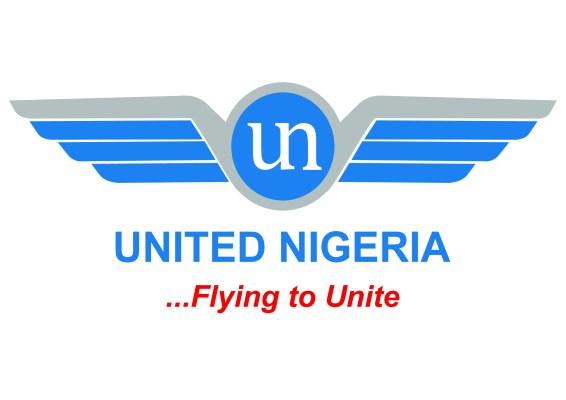Explainer: What Trump’s ‘Country of Particular Concern’ label means for Nigeria

When U.S. President Donald Trump announced that Nigeria had been designated a “Country of Particular Concern” (CPC) over the killing of Christians, it sent ripples through diplomatic and political circles in both Nigeria and Washington.
The declaration — though Country of Particular Concern symbolic at first glance — carries significant implications for Nigeria’s international reputation, foreign relations, and economic ties with the United States.
What is a ‘Country of Particular Concern’?
The Country of Particular Concern designation is part of the United States’ International Religious Freedom Act (IRFA) of 1998, a law that requires the U.S. government to identify and sanction countries that engage in or tolerate “systematic, ongoing, and egregious violations of religious freedom.”
Each year, the U.S. Department of State, working through its Office of International Religious Freedom, reviews global conditions and compiles a list of nations that meet this threshold. Countries on this list are deemed to have failed to protect their citizens’ freedom to practise any religion — or none at all — without fear of persecution, violence, or discrimination.
Being designated as a CPC places a country in the same category as nations like North Korea, Iran, Myanmar, and China, which the U.S. has accused of repressing religious minorities or promoting state-sponsored persecution.
Why Nigeria is on the list

President Trump, in his statement, cited “mass killings of Christians” and claimed that “radical Islamists” were responsible for thousands of deaths. He described the situation as an “existential threat” to Christianity in Nigeria and directed members of Congress to investigate.
While religiously motivated violence has long been a sensitive issue in Nigeria, the facts are more complex. Over the past decade, the country’s north-east and middle belt have witnessed thousands of deaths linked to Boko Haram insurgency, clashes between farmers and herders, and widespread banditry.
Human rights groups and Christian organisations, including Open Doors International, have repeatedly accused Nigerian authorities of not doing enough to protect Christian communities, especially in rural areas. Conversely, local analysts argue that the violence often stems from resource competition, land disputes, and weak governance rather than religion alone.
Nonetheless, Washington’s action suggests that the U.S. government views Nigeria as failing to protect freedom of religion under international standards.
What the designation means
At its core, the CPC designation is both a diplomatic warning and a potential prelude to sanctions. Under U.S. law, the Secretary of State can impose a range of measures on a country designated as a CPC. These include:
1. Travel restrictions on officials implicated in rights abuses;
2. Suspension or reduction of U.S. development assistance;
3. Restrictions on arms sales or defence cooperation;
4. Economic sanctions, such as freezing assets or blocking transactions with U.S. entities;
5. Or, in some cases, negotiated waivers, if Washington believes engagement is more productive than punishment.

In practice, not every CPC-listed country faces immediate sanctions. The U.S. often uses the designation as leverage to push for policy reforms, improved human rights protection, or accountability mechanisms.
Nigeria’s diplomatic dilemma
For Nigeria, the label could complicate relations with Washington at a time when the country is seeking stronger investment and security cooperation.
First, the symbolism of being named alongside pariah states like North Korea or Iran could damage Nigeria’s image as a regional democracy. It paints a picture of a country where citizens are unsafe because of their faith — a narrative that Abuja has long tried to counter.
Second, the economic impact could be subtle but far-reaching. Although the U.S. remains one of Nigeria’s top trading partners, investor confidence could take a hit if Washington links human rights concerns to bilateral aid or trade. Nigeria currently benefits from several U.S. assistance programmes in health, security, and governance, including through the U.S. Agency for International Development (USAID) and the Millennium Challenge Corporation (MCC). These partnerships could face greater scrutiny.
Third, the security dimension is delicate. The Nigerian military receives U.S. support in counter-terrorism, especially in the fight against Boko Haram and Islamic State West Africa Province (ISWAP). A deterioration in relations could affect arms sales and intelligence sharing — areas where Washington has historically been cautious due to human rights concerns.
How Nigeria might respond

The Nigerian government has typically rejected such labels, arguing that the violence across different regions is driven by criminality and weak law enforcement rather than religious persecution. Officials often describe the situation as “complex and multi-dimensional.”
In previous years when similar accusations arose, Nigeria sought to engage U.S. diplomats through dialogue rather than confrontation. Analysts expect a similar approach this time — likely involving a diplomatic note to Washington and efforts to lobby Congress and the State Department.
Nigeria may also point to the country’s multi-faith structure, its inclusion of Christian and Muslim leaders in government, and interfaith peace initiatives as evidence of its commitment to religious freedom.
The bigger picture
Beyond the immediate diplomatic fallout, Trump’s decision revives a long-running debate about how religion intersects with violence in Nigeria.
While attacks on churches, mosques, and communities continue, many Nigerians agree that the root causes — poverty, inequality, weak justice systems, and the proliferation of arms — must be addressed if peace is to be sustained.
The CPC designation, therefore, serves as a reminder that Nigeria’s internal security crisis has global visibility. It may increase pressure on the government to strengthen protection for all citizens, regardless of faith, and to ensure that perpetrators of violence face justice.
Whether Washington follows up with sanctions or not, the message is clear: the world is watching how Nigeria protects the rights of its people to live — and worship — freely.












